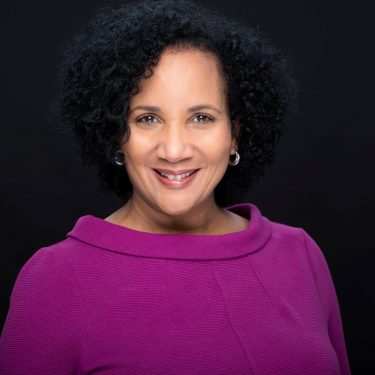You may download the Peralta Community College District AP 5530 here or use the sub menu for files regarding this topic.
ADMINISTRATIVE PROCEDURE 5530 STUDENT RIGHTS AND GRIEVANCE PROCEDURE
The purpose of this procedure is to provide a prompt and equitable means of resolving student grievances. This procedure shall be available to any student who reasonably believes an experience or decision has adversely affected his or her status, rights or privileges as a student. A grievance may be initiated by a student against an instructor, an administrator, or a member of the classified staff. A grievance may also be initiated against another student.
I. Grounds for Filing Student Grievances. The Student Grievance Procedure shall apply only to grievances involving:
A. Academic (Grade) Grievance: a complaint alleging mistake, fraud, bad faith or incompetence in the academic (grade) evaluation of student performance.
B. Violation of Law, Policy, and Procedures:
1. Violation of rights to which a student is entitled by law or District policy, including financial aid, the exercise of free expression, rules for student conduct, admission, probation, or suspension or dismissal policies.
2. Act or threat of physical aggression
3. Act or threat of intimidation or harassment
C. This Student Grievance Procedure does not apply to:
1. Police citations (i.e. “tickets”). Complaints about citations must be directed to the Campus Police in the same way as any traffic violation.
2. Discrimination, Sexual Assault, or Sexual Harassment. Any student who feels he/she has been or is presently an alleged victim of sexual harassment, may first contact the Vice President of Student Services to file a complaint verbally or in writing, or may directly contact the District’s Equal Opportunity Coordinator at 333 East Eighth Street, Oakland, CA 94606, (510) 466-7220. At the time a complaint is made known, a copy of the complaint procedures and a complaint form shall be made available to the complainant. For additional information regarding reporting of discrimination, sexual assault, or sexual harassment, please refer to Discrimination Complaint Procedures in this catalog.
II. Definitions
A. Party: The student or any persons claimed to have been responsible for the student’s alleged grievance, together with their representatives. “Party” shall not include the Grievance Hearing Committee.
B. Student: A currently enrolled student, a person who has filed an application for admission to the college, or a former student. A grievance by an applicant shall be limited to a complaint regarding denial of admission. Former students shall be limited to grievances relating to course grades to the extent permitted by Education Code Section 76224(a).
C. Respondent: Any person claimed by a grievant to be responsible for the alleged grievance.
D. Observer: An individual who is present at a hearing to observe the proceeding, but shall not be allowed to speak and address the committee.
E. Written Notice/Written Decision: Notice sent by personal service or by registered or certified mail with return receipt requested via the U.S. Postal Service.
F. Day. Unless otherwise provided, the day shall mean a day during which the college is in session and regular classes are held, excluding Saturdays, Sundays, and District holidays.
III. Grievance Process
A. Informal Resolution
Within 30 days of the allegation, each student who has a grievance shall make a reasonable effort to resolve the matter on an informal basis prior to requesting a grievance hearing:
1. For an academic (grade) grievance, the student shall make an appointment with the faculty against whom he/she has a grievance during the faculty member’s posted office hours or at a mutually agreed upon time, in order to discuss the student’s complaint. Should the faculty against whom the student has an academic complaint fail to meet with the student in a timely manner, the student may meet with the Division Dean of Instruction of the faculty member.
2. For a grievance based on an alleged violation of law, policy, and procedures, the student shall attempt to solve the problem with the person with whom the student has the grievance, that person’s immediate supervisor, or the Vice President of Student Services (or designee).
B. Formal Complaint Procedures
Any student who believes he/she has a grievance must file an approved grievance complaint form with the Vice President of Student Services (or designee). The student may obtain the form from the Office of the Vice President of Student Services.
The student must file within 90 days of the incident on which the grievance is based; or after the student knew or should have known of the basis for the grievance, whichever is later. The grievance complaint must be filed whether or not the student has already initiated efforts at informal resolution if the student wishes the grievance to become official. Failure to file a formal complaint within such ninety (90) day period constitutes a waiver of the student’s right to appeal.
1. Filing Complaint
The complaint must include the following:
a. The exact nature of the complaint (grounds)
b. The specific details of the complaint (e.g., the chronology of the event and an explicit description of the alleged violation)
c. A description of the informal meeting and attempted resolution, if any
d. The specific resolution/remedy sought
The complaint should be filed with the Vice President of Student Services.
2. Meeting with Vice President of Student Services (or designee)
The Vice President of Student Services (or designee) shall provide to the person against whom the grievance has been filed a copy of the grievance and a copy of the procedure.
The Vice President of Student Services (or designee) will provide the grievant with a written copy of the policy and procedures and answer all questions regarding the policy including the student’s rights and responsibilities in the process of filing a grievance. For academic (grade) grievance, the Vice President of Student Services (or designee) will inform the student that a grade change may only be made where there is a finding of fraud, mistake, bad faith, or incompetence.
The student and Vice President of Student Services (or designee) shall attempt to reach an informal resolution.
3. Request for Grievance Hearing
If an informal resolution cannot be reached, the Vice President of Student Services (or designee) shall make a request for records and documents from the student filing the complaint and forward copies of all documents pertinent to the alleged violation to the Chair of the Grievance Committee and the parties. Documents or accusations not specifically related to the alleged violations shall not be forwarded to the committee or the parties.
a. For academic (grade) grievance, the Chair shall request records and documents from the faculty member against whom the complaint has been filed.
b. For grievance based on an alleged violation of law, policy, and procedures, the Chair shall request records and documents from the party against whom the complaint has been filed.
The Grievance Hearing timeline may be tolled (postponed) pending a formal investigation of any discrimination claims by or against the student. Such investigation must be concluded no later than 90 calendar days as required by law.
4. Grievance Hearing Committee
Within 90 days following receipt of the grievance complaint form, the Grievance Hearing Committee shall conduct a hearing. The following College Grievance Committee members shall be appointed for a term of one academic year as follows:
a. The Vice President of Instruction, who shall Chair the committee;
b. One faculty member (and one alternate) jointly appointed by the PFT and the Faculty Senate;
c. One administrator (and one alternate) appointed by the College President;
d. One student (and one alternate) appointed by the President of the Associated Students
Additional committee member:
e. For academic (grade) grievances, one faculty member (and one alternate) jointly appointed by the PFT and the Faculty Senate; or
f. For other grievances, one classified employee (and one alternate) was jointly appointed by Local 790 and the Classified Senate.
A committee member shall withdraw from participation in the hearing if a conflict of interest is anticipated, in which case the alternate member shall serve. The members of the Committee shall be provided with a copy of the grievance and any written response provided by the respondent before the hearing begins. Four-fifths of the members of the committee shall be present in order for the committee to act.
5. Hearing Procedure
a. The Vice President of Instruction, as Chair, shall provide written notice, including the date, time, and place of the hearing to both parties at least ten days prior to the hearing. The notice shall be hand-delivered or sent by certified mail and shall include a copy of the complaint.
b. The Chair shall provide the involved complainant with a written summary of rights he/she may be entitled to by law or contract at least 10 days before the hearing. For academic (grade) grievance, the Chair of the committee shall provide the involved faculty member with a written summary of rights he/she may be entitled to by law or contract at least 10 days before the hearing. Both parties shall be given adequate time (at least 10 days) to read and review all documents, consistent with privacy laws. This right may be waived by either party. Both parties shall be informed that all relevant evidence presented to the hearing committee, whether written or oral, may be used against them in this or any other proceeding unless otherwise prohibited by law. The written notice shall inform the parties of this fact. The Chair of the committee shall inform both parties orally of this fact at the commencement of the hearing.
c. The decision of the Chair shall be final on all matters relating to the conduct of the hearing unless there is a vote by a majority of the other members of the panel to the contrary. The Chair may do whatever is necessary, so long as it is legally permissible, to ensure that the hearing is conducted in a fair, dignified, and orderly manner.
d. The Chair of the committee may exclude a witness from the hearing when the witness is not giving testimony.
e. Anyone who disrupts the proceeding or interferes shall be excluded from the proceeding.
f. All information derived from the complaint is confidential. Information may not be made public nor discussed with anyone except those with a legitimate need to know.
g. The hearing shall be open only to persons directly involved in the matters to be heard. The bargaining agent representing the respondent may send an observer to any hearing.
h. The committee may call in “expert witnesses” if the subject of the grievance is beyond their expertise.
i. The committee shall inform the witnesses (other than the accused) in writing that they are sought for interview purposes and their participation in the process is requested by the committee. Witnesses shall also be informed as to the purpose of the interview, the general subject of the interview, and their right to request representation by any one of their choosing prior to and during the said interview.
j. Any member of the committee may ask questions of any witness.
k. The hearing shall be conducted so as to bring all of the relevant information and evidence to the members of the committee in an orderly and intelligible form. Formal rules of evidence shall not apply. Any relevant evidence shall be admitted, if it is the sort of evidence on which responsible persons are accustomed to relying upon in the conduct of serious affairs. Accusations not
specifically related to the alleged violation shall not be considered relevant. The rules of privilege shall apply to the same extent that they are recognized in civil actions.
l. At all steps of the process, both the student filing and the other party have the right to be accompanied, advised, and represented by a person or counsel of their choosing. If either party wishes to be represented by an attorney, a request must be presented not less than 10 days prior to the date of the hearing. If the student is permitted to be represented by an attorney, the college representative may request legal assistance. The hearing committee may also request legal assistance; any legal advisor provided to the panel may sit with it in an advisory capacity to provide legal counsel but shall not be a member of the panel nor vote with it.
m. If the respondent or his/her representative, or both, are absent from all or a part of the hearing, the committee shall make its recommendations on the basis of whatever evidence is submitted before the hearing and on whatever evidence and testimony are presented to the committee during the hearing.
n. The committee shall make all evidence, written or oral, part of the record.
o. The committee shall judge the relevancy and weight of testimony and evidence and make its findings of fact, limiting its investigation to the formal charge. The decision shall be based only on the record of the hearing, and not on matters outside of that record.
p. The burden shall be on the grievant to prove by a preponderance of the evidence that the facts alleged are true and a grievance has been sufficiently established.
q. The hearing date may be postponed or continued at the discretion of the Chair of the committee. Both parties shall be given notice of the new or continued hearing date.
r. The votes of the majority of the members present (at least 3 votes) are necessary in order for the committee to make a recommendation to the Vice President of Student Services.
s. The Chair of the committee shall notify the Vice President of Student Services of the committee’s recommendation within 10 days.
t. A summary record of the proceedings held in a closed session shall be kept in a confidential file by the Vice President of Student Services and shall be available at all times to the accused person. The Vice President of Student Services has the responsibility to ensure that a proper record is maintained and available at all times.
6. Final Decision by Vice President of Student Services
Based on the grievance hearing committee’s recommendations, the Vice President of Student Services (or designee) may accept the recommendation, return it to the committee for further review, or reject it. Within 10 days of receipt of the committee’s recommendation, the Vice President of Student Services (or designee) shall send written notification to the parties and committee informing them of:
a. The committee’s recommendation;
b. The final decision by Vice President of Student Services; and
c. Appeals procedure
Any decision to reject findings of the committee must be supported by a summary finding of fact. The decision to recommend a grade change must be supported by a summary finding of fact, establishing mistake, fraud, bad faith or incompetence.
7. Appeals
a. President’s Decision
The Vice President of Student Services’ (or designee’s) decision may be appealed by either party in writing within 10 days of the Vice President of Student Services’ (or designee’s) decision.
The College President shall issue a written decision to the parties and their representatives within ten (10) days of receipt of the appeal. A decision to change a grade must be supported by a summary finding of fact, establishing mistake, fraud, bad faith or incompetence.
b. Chancellor’s Decision
The College President’s decision may be appealed to the Chancellor in writing within 10 days of receipt of the decision.
The Chancellor, or designee, shall issue a written decision to the parties and the representatives by certified mail within 10 days of the receipt of the decision. A decision to change a grade must be supported by a summary finding of fact, establishing mistake, fraud, bad faith or incompetence.
c. Board of Trustees’ Decision
The Chancellor’s (or designee’s), decision may be appealed to the Board of Trustees in writing within 10 days of the receipt of the decision.
The Board will review the documentation of the prior steps of the case and determine whether to confirm the Chancellor’s decision or hear the appeal. If the Board confirms the Chancellor’s decision, the appellant has exhausted his or her remedies. If the Board decides to consider the appeal, it will do so in closed session subject to Education Code 72122, and will issue a final decision within forty-five (45) days after receipt of the decision.
A decision to change a grade must be supported by a summary finding of fact, establishing mistake, fraud, bad faith or incompetence. Implementation of any grade change shall be held in abeyance until the internal appeal process has been exhausted.
All recommendations, resolutions, and actions taken by the Board of Trustees shall be consistent with the State and Federal law, the Peralta Community College District Policies and Procedures, and the PFT and Local 790 Collective Bargaining Agreements. (In the event of a conflict between the Collective Bargaining Agreement and the PCCD Policies and Procedures, the Collective Bargaining Agreement shall govern.)
8. Time Limits
Any times specified in these procedures may be shortened or lengthened if there is mutual concurrence by all parties.
References:
Education Code Section 76224(a)
Title IX, Education Amendments of 1972
Approved by the Chancellor: December 7, 2012
OFFICE OF INSTRUCTION TEAM
 |
 |
| Denise Richardson Vice President of Instruction drichardson@peralta.edu |
Tachetta Henry Staff Assistant tachettahenry@peralta.edu |
 |
 |
| Jane Fong Senior Academic Support Services Specialist jfong@peralta.edu |
LaShaune Fitch Curriculum Specialist lfitch@peralta.edu |

